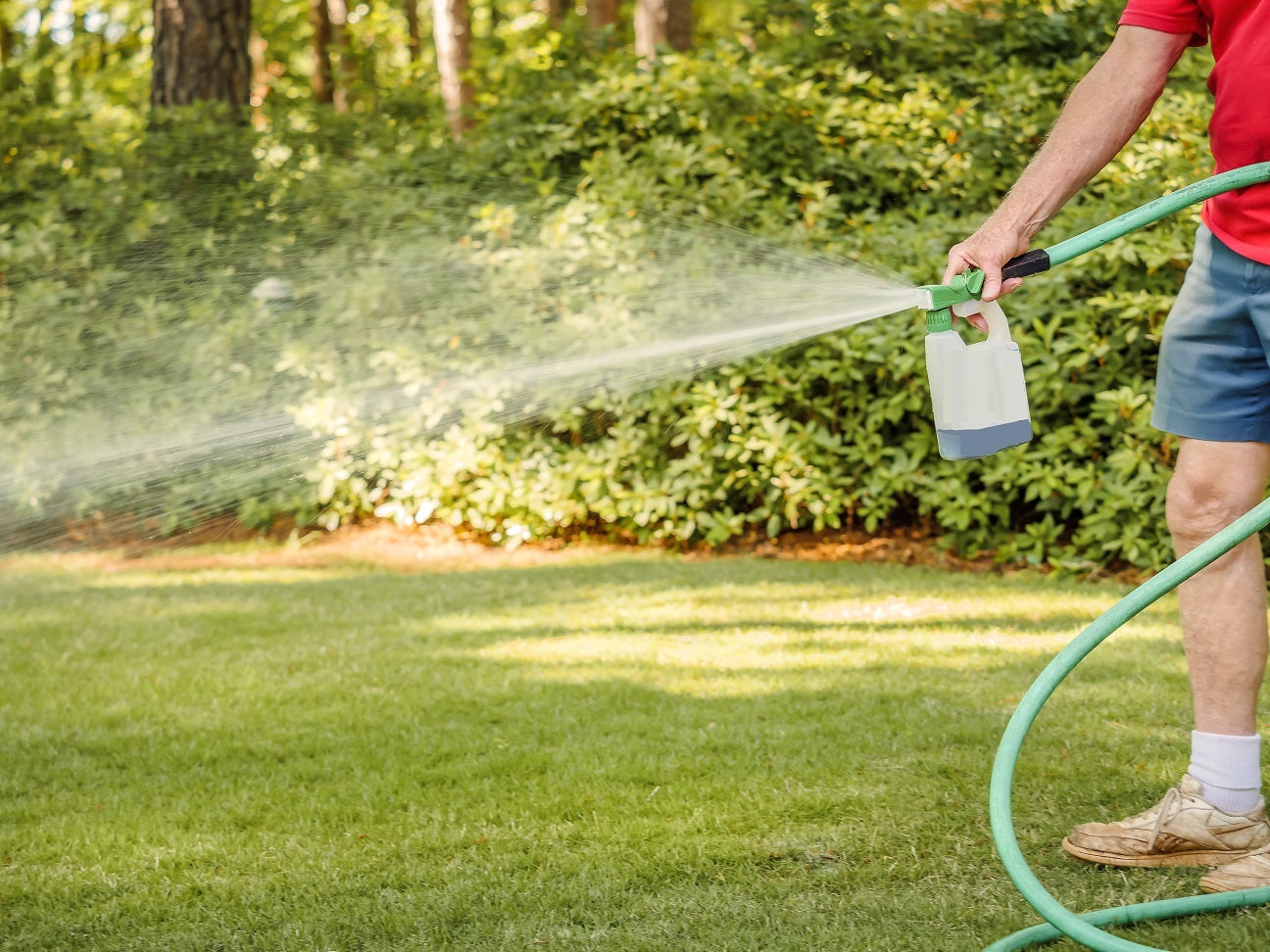Have you ever wondered, can I use liquid nitrogen fertilizer in a hose sprayer? This question is common among gardeners looking to maximize their efficiency while ensuring their plants receive the nutrients they need. Fertilizing can often feel like a chore, but with the right tools and knowledge, it can become a straightforward task.
Liquid nitrogen fertilizers are popular due to their ability to promote rapid growth and lush greenery. However, using them effectively requires understanding how to apply them properly. In this article, we will explore the ins and outs of using liquid nitrogen fertilizer in a hose sprayer, ensuring you get the most out of your gardening efforts.
Whether you're a seasoned gardener or just starting out, knowing how to use a hose sprayer can save you time and effort. We will discuss various aspects of this method, including preparation, application techniques, and tips for success. So let’s dive into the world of fertilization!
Using liquid nitrogen fertilizer in a hose sprayer can transform your gardening experience, making it efficient and effective.
Table of Contents
ToggleCan I Use Liquid Nitrogen Fertilizer in a Hose Sprayer?
The straightforward answer is yes; you can use liquid nitrogen fertilizer in a hose sprayer. However, there are several factors to consider before doing so. First and foremost, ensure that the fertilizer is compatible with your specific hose sprayer model. Some fertilizers may be too thick or contain particles that could clog the sprayer.

When using liquid nitrogen fertilizer, it’s crucial to follow the manufacturer's instructions regarding dilution rates. Typically, these fertilizers need to be mixed with water at specific ratios to prevent damage to your plants. A common practice is to mix one part fertilizer with 10 parts water, but always check the label for precise recommendations.
The Benefits of Using a Hose Sprayer
Using a hose sprayer for applying liquid nitrogen fertilizer offers numerous benefits:
- Efficiency: Hose sprayers allow you to cover large areas quickly, saving time compared to manual application methods.
- Even Distribution: They provide an even distribution of fertilizer, ensuring all plants receive adequate nutrients.
- Less Labor-Intensive: Using a sprayer reduces physical strain as you don’t have to carry heavy watering cans or buckets.
This method is particularly useful for larger gardens or lawns where traditional methods may be impractical. By utilizing a hose sprayer, you can maintain your garden's health without excessive effort.
How to Use Liquid Nitrogen Fertilizer in a Hose Sprayer
To effectively use liquid nitrogen fertilizer in your hose sprayer, follow these steps:
- Select the Right Sprayer: Choose a hose sprayer that is compatible with liquid fertilizers. Look for one with adjustable settings for different dilution rates.
- Dilute Properly: Mix the liquid nitrogen fertilizer with water according to the instructions provided on the label. Ensure it is well-blended before filling the sprayer.
- Set Up Your Sprayer: Attach the filled jug to your hose sprayer and adjust the dial according to the desired application rate.
- Apply Evenly: Walk slowly while spraying to ensure even coverage across your garden or lawn area.
This method not only simplifies fertilization but also enhances plant growth by delivering nutrients directly where they are needed most.
Best Practices for Using Liquid Nitrogen Fertilizer
To maximize the effectiveness of using liquid nitrogen fertilizer in your hose sprayer, consider these best practices:
- Avoid Over-Fertilization: Too much nitrogen can harm plants. Stick to recommended application rates and frequency.
- Avoid Application During Heat: Apply fertilizers during cooler parts of the day to prevent leaf burn.
- Clean Your Equipment: After use, thoroughly clean your hose sprayer to prevent clogs and residue buildup.
By adhering to these practices, you can ensure your plants thrive without risking damage from improper fertilization techniques.
Frequently Asked Questions - FAQS
Q. Can all types of fertilizers be used in hose sprayers?
A. Not all fertilizers are suitable; check compatibility before use.
Q. How often should I apply liquid nitrogen fertilizer?
A. Typically every 4-6 weeks during the growing season is recommended.
Q. What should I do if my plants show signs of over-fertilization?
A. Flush the soil with water and reduce future application rates.
Q. Is it safe to use liquid nitrogen fertilizer on all plants?
A. Some sensitive plants may react negatively; always check plant compatibility first.
Q. Can I mix different types of fertilizers in my hose sprayer?
A. Mixing different fertilizers can lead to chemical reactions; consult guidelines before mixing.
Q. How do I know if my fertilizer is working?
A. Look for signs of healthy growth and vibrant foliage as indicators of effectiveness.
Q. Should I water my plants before applying fertilizer?
A. Yes, watering beforehand helps prevent root burn from concentrated fertilizers.
Q. What happens if I use too much nitrogen fertilizer?
A. Overuse can lead to nutrient burn and damage plant roots; moderation is key.
Q. Can I use organic liquid nitrogen fertilizers in my sprayer?
A. Yes, as long as they are suitable for spraying applications; check compatibility first.
Q. What time of year is best for applying nitrogen fertilizers?
A. Spring is typically ideal as plants begin their active growth phase.
Conclusion
The question can I use liquid nitrogen fertilizer in a hose sprayer?, has a positive answer when done correctly. By understanding how to properly dilute and apply this type of fertilizer using a hose sprayer, you can enhance your gardening experience significantly. Remember that proper usage leads not only to healthier plants but also saves time and effort in maintaining your garden's beauty.